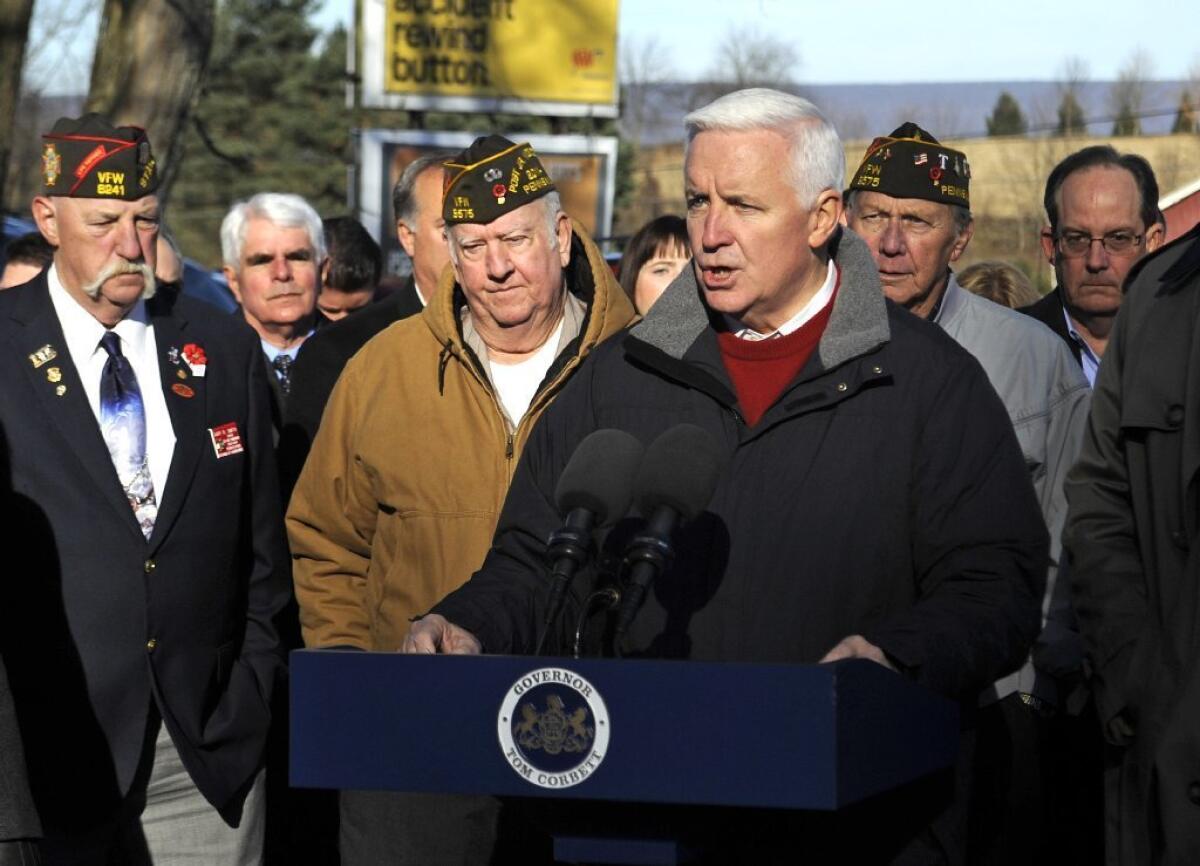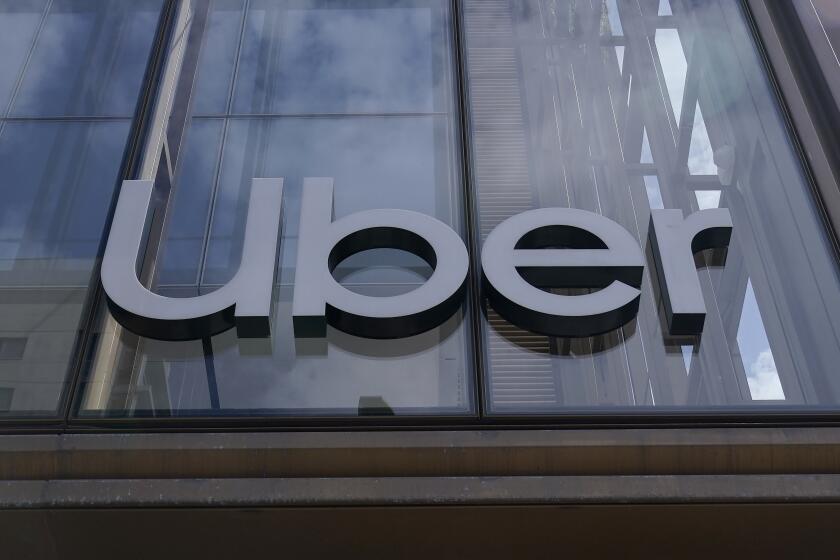Pennsylvania isn’t serious about expanding Medicaid. How do we know?

- Share via
Pennsylvania Gov. Tom Corbett has lately been getting credit in the political press for being one of those Republican governors coming around on the expansion of Medicaid under the Affordable Care Act. Advocates for the underprivileged can’t understand why.
They’re right to wonder. Corbett’s “Healthy Pennsylvania” plan, which was released for public comment this week, is a sham. It would reduce health benefits for many of his neediest citizens and impose punitive conditions on their coverage. It requires waiver approval from the federal government that’s almost certain to be refused, because some of its provisions are in flagrant violation of federal law. And even if it were approved, Corbett waited so long to put his plan together that it probably couldn’t be implemented until 2015. In the meantime, 500,000 of his citizens will be medically uncovered.
“He’s being very disingenuous,” says Joan Alker, executive director of the Center for Children and Families at Georgetown University. “He knows a lot of this proposal is not approvable” under federal law.
Corbett’s proposal shows that many Republicans still aren’t done posturing with their citizens’ lives, even as some have done the right thing--among them Gov. John Kasich of Ohio and Jan Brewer of Arizona. Some GOP governors, like Rick Perry of Texas and Bobby Jindal of Louisiana, seem determined to take their neediest citizens all the way down--they’re not budging on their refusal to expand Medicaid coverage.
Corbett wants to have it both ways. He intends to masquerade as a feeling governor intent on bringing healthcare to the masses at practical cost. But beneath the fancy dress lies a cynical politician who knows his plan isn’t practical. If it gets rejected he’ll blame the Obama administration. “We tried,” he’ll say. “But they blocked us.” Don’t be taken in.
The plan requires premiums to be paid by Medicaid enrollees with monthly incomes as low as $479, at which level the premiums would be $13 a month. Think that’s not too bad? Try living on that monthly income and scraping together a single extra dollar. What’s worse is that Corbett’s plan would throw people off the coverage rolls for three months if they miss a single premium payment. The second miss gets them barred for six months and the third for nine months.
This punitive provision belongs in the dictionary next to the term “counterproductive.” If your goal is to enroll people in a health program, the idea is to lower barriers to entry, not raise them. The Medicaid population, by definition, is one with spotty income at best. The likelihood that they might miss a premium payment is high. The last thing they need is for their government to stack the deck against their continuing access to healthcare.
Corbett’s administration describes this provision in its waiver application designed “to instill a sense of personal responsibility into the program and reinforce incentives for healthier behaviors.” If there’s a depiction of the poor that drips more with contempt and arrogance than that, I’m not sure I want to hear it.
Corbett would also require that adults in the program sign up for “work search.” This is another punitive feature barred by federal law; healthcare programs are not employment programs, and mixing them is likely to harm both efforts. Corbett argues that working people are healthier people, so it’s all to the good. But that’s the sort of facile claim that dishonest politicians make.
“He has the correlation backwards,” Alker says. “Healthcare helps address the medical problems that may be keeping people from working. Shutting people from coverage is not a smart way to impose health.” Conditioning healthcare on efforts to find work is more likely to condemn the target population to a cycle of illness and joblessness. It sounds good, but only if you’re tone deaf.
Some analysts in Pennsylvania had Corbett’s number on this plan from the very start. As long ago as September, the Pennsylvania Budget and Policy Center saw the plan as a device to impose “significant reductions to the healthcare program that has served the state’s most vulnerable citizens for more than 50 years.”
As enacted under the Affordable Care Act, the expansion of Medicaid was clear and simple. Raise the income eligibility limits, which varied by state) to 138% of the poverty line and add populations otherwise uncovered, including poor single adults, and the federal government would cover 100% of the increased cost for three years, and 90% or more after that, through 2022.
This is obviously a bargain, as is evident to anyone not still playing with his toes. Only the most rock-ribbed ideologues have turned it down, but they’re in control of 25 states. As we’ve reported before, those states are giving up a net $40 billion a year in federal aid. Corbett wants to be considered a hero for finding a middle way, but he knows in his heart that he’s found no way.
More to Read
Inside the business of entertainment
The Wide Shot brings you news, analysis and insights on everything from streaming wars to production — and what it all means for the future.
You may occasionally receive promotional content from the Los Angeles Times.











